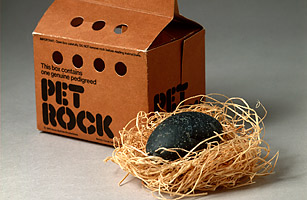 Just like the rooster on my grandfather’s farm in southern West Virginia, MOOCs are waking up higher education. And like many of my colleagues, I am torn when it comes to how I feel about MOOCs. I have publically called them the academic Pet Rock.
Just like the rooster on my grandfather’s farm in southern West Virginia, MOOCs are waking up higher education. And like many of my colleagues, I am torn when it comes to how I feel about MOOCs. I have publically called them the academic Pet Rock.
I remember how much I wanted a Pet Rock for Christmas when I was a kid and how excited I was to open up that brown box with the holes in the side. Nestled in the protective bed of shredded paper, there it was – my very own pet rock. It was the best Christmas ever!
But within a couple of days, I figured out that the pet rock really didn’t do much of anything except sit there. Bored with it, I put it in a drawer where it remained, out of sight and out of mind for the last thirty years, until my mother recently unearthed it. I see MOOCs in a similar light.
I am excited to see Ivy League and top tier schools finally show interest in delivering quality online education, something I have been advocating for the last 10 years. Regional accreditors, however, don’t know what do to with MOOCs since they fall outside of their purview and are now being forced to look at changing their very traditional model. I see this as a welcome change.
Professors are now excited about going global via the web to convey their knowledge and expertise and they have figured out a way to completely bypass the conventional red tape of course development by cutting out the hierarchy of committees…not to mention circumventing the faculty senate. Now, as more institutions are rushing to accept MOOCs as prior learning credit, the idea that learning can (and does) occur outside of the walls of traditional institutions is gaining traction.
However, MOOCs have their problems. Many schools still will not accept them for credit. Retention rates in most MOOCs are deplorable and the engagement between the faculty and students is nowhere near what it should be. How could it be when there are over 100,000 students in a class, in some cases, maybe even more? Despite growing investment in providers like Coursera and EdX, there is no realistic model emerging to allow the monetization of these courses.
I believe MOOCs, like my pet rock, will enjoy its short-lived popularity, but will eventually get stuck in a drawer. Just like my grandfather’s rooster really didn’t do much except announce a new day, so crows the MOOC.
